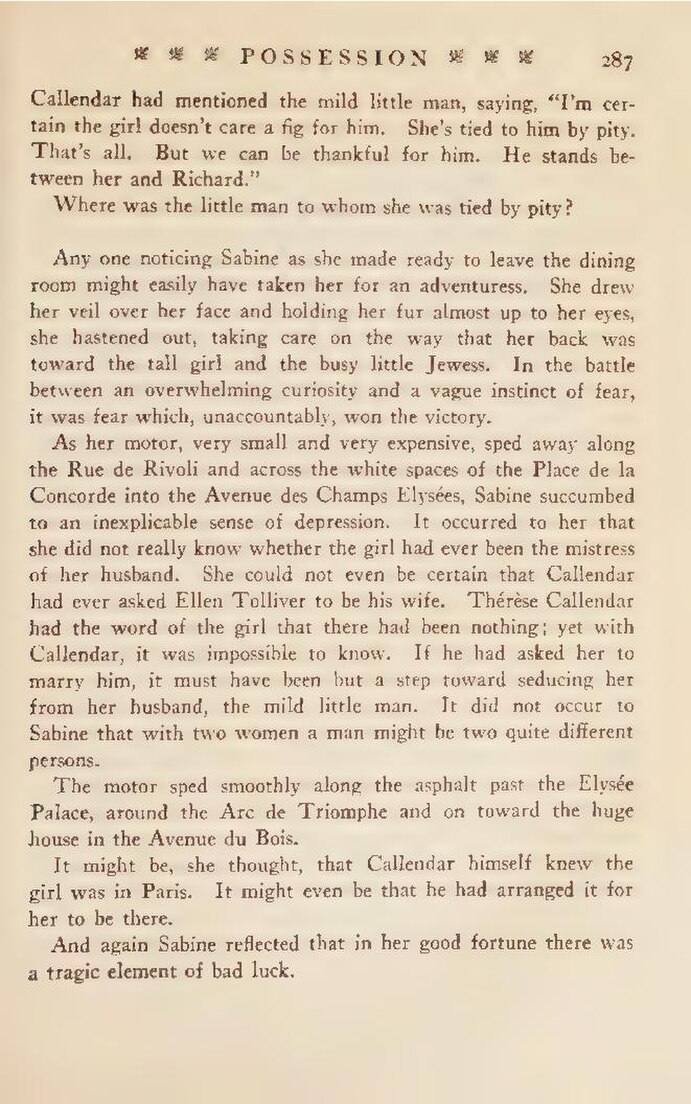Callendar had mentioned the mild little man, saying, "I'm certain the girl doesn't care a fig for him. She's tied to him by pity. That's all. But we can be thankful for him. He stands between her and Richard."
Where was the little man to whom she was tied by pity?
Any one noticing Sabine as she made ready to leave the dining room might easily have taken her for an adventuress. She drew her veil over her face and holding her fur almost up to her eyes, she hastened out, taking care on the way that her back was toward the tall girl and the busy little Jewess. In the battle between an overwhelming curiosity and a vague instinct of fear, it was fear which, unaccountably, won the victory.
As her motor, very small and very expensive, sped away along the Rue de Rivoli and across the white spaces of the Place de la Concorde into the Avenue des Champs Elysées, Sabine succumbed to an inexplicable sense of depression. It occurred to her that she did not really know whether the girl had ever been the mistress of her husband. She could not even be certain that Callendar had ever asked Ellen Tolliver to be his wife. Thérèse Callendar had the word of the girl that there had been nothing; yet with Callendar, it was impossible to know. If he had asked her to marry him, it must have been but a step toward seducing her from her husband, the mild little man. It did not occur to Sabine that with two women a man might be two quite different persons.
The motor sped smoothly along the asphalt past the Elysée Palace, around the Arc de Triomphe and on toward the huge house in the Avenue du Bois.
It might be, she thought, that Callendar himself knew the girl was in Paris. It might even be that he had arranged it for her to be there.
And again Sabine reflected that in her good fortune there was a tragic element of bad luck.
